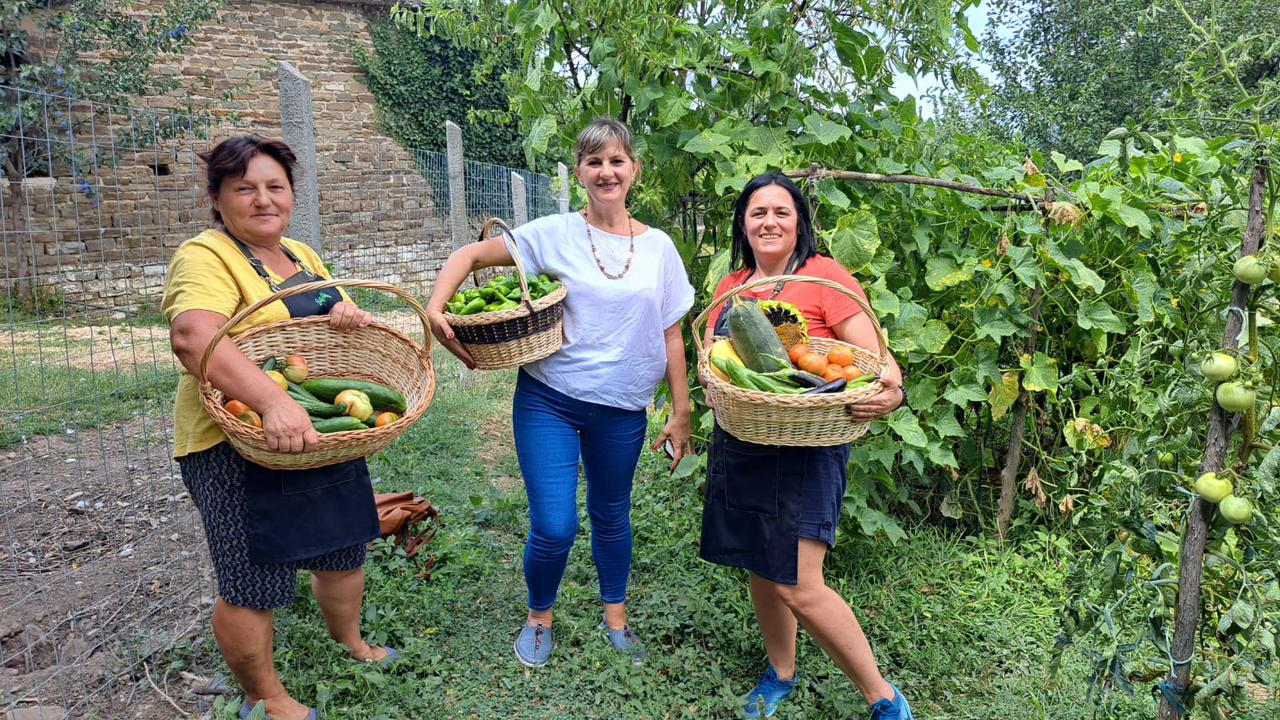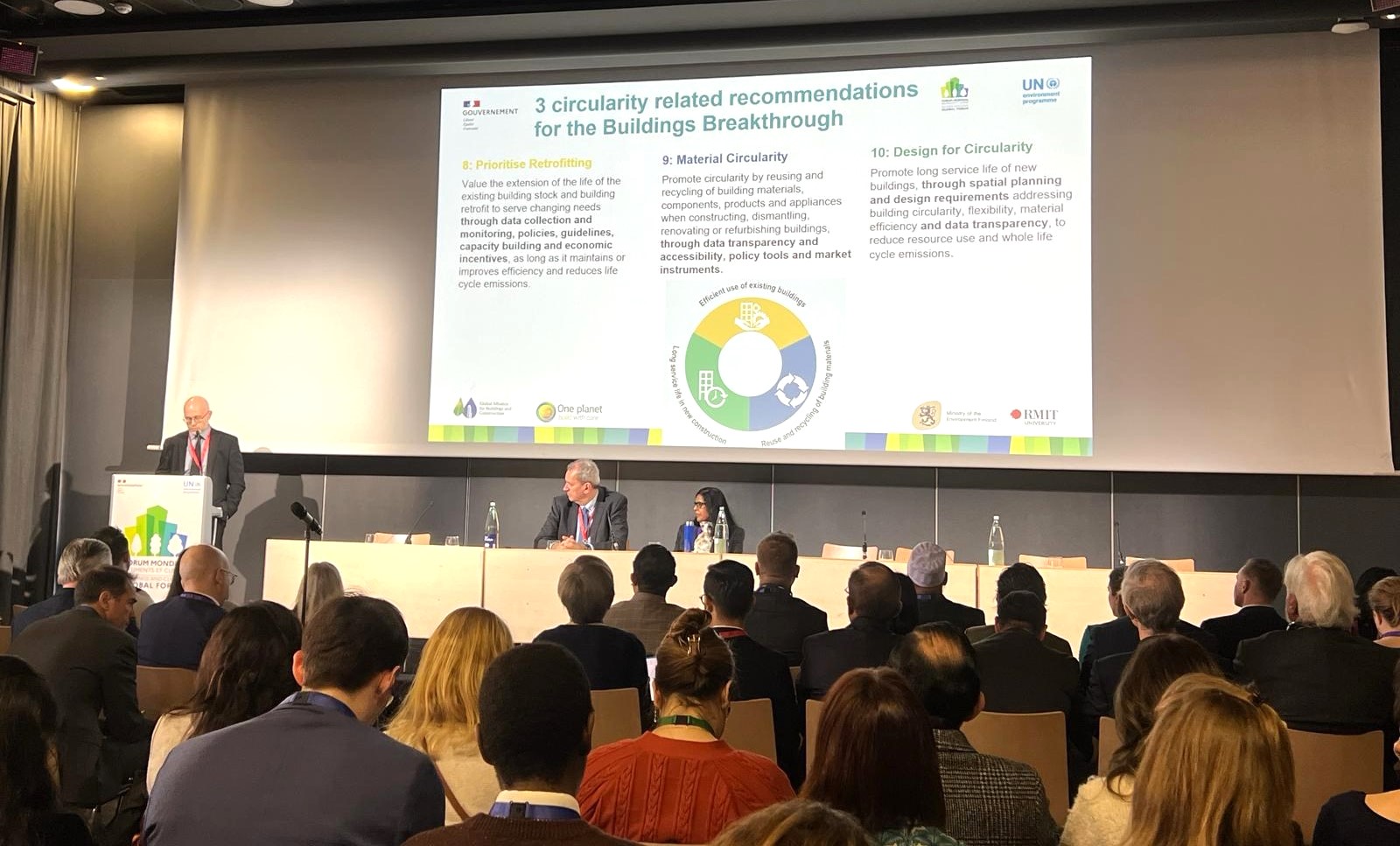Lim Li Ching: From Agroecology To Food Sustainability — A Global Food Systems Analysis

This interview is part of a series conducted in the lead-up to the 4th Global Conference of the One Planet Network Sustainable Food Systems programme to be held from 24-27 April in Hanoi, Vietnam.
Lim Li Ching is a Senior Researcher at Third World Network (TWN), an international policy research and advocacy NGO based in Malaysia, and coordinates its work on biodiversity, biosafety and sustainable agriculture. TWN’s mission is to bring about a greater articulation of the needs and rights of peoples in the South, a fair distribution of world resources, and forms of development which are ecologically sustainable and fulfil human needs. As of January 2023, she is co-chair of the International Panel of Experts on Sustainable Food Systems (IPES-Food), of which she has been a panel member since 2015. She has a B.Sc. in Ecology and an M.Phil. in Development Studies.
Agro-ecology and the Paradigm Shift in Agriculture and Food Systems
When asked about the current moment for food systems, Lim Li Ching brings the conversation back to 2009, when she was involved in the development of the final report of the International Assessment of Agricultural Knowledge, Science and Technology for Development (IAASTD) assessing the relevance, quality and effectiveness of agricultural knowledge, science and technology. She feels that this massive effort was unique at the time, in bringing together so many experts across so many disciplines. While the real journey had yet to start, she notes that in 2009 there was a tangible shift in attitudes. Calls for a real paradigmatic shift began picking up momentum, for a transformation towards sustainable food systems, particularly with regard to agro-ecology and its contribution to this process. “Agroecology applies ecological principles to the design and management of agroecosystems. It is a movement for action and empowerment of small-scale producers, especially those with knowledge and expertise… There is also an emphasis on social and environmental justice aspects… as it involves recognising that the traditional knowledge of indigenous peoples is equally important and is one of the foundations on which much of the science is based.” Ms. Lim further elaborates on the above-mentioned shift explaining that it came about through recognising the role of farmers and producers by working with them on field knowledge, rather than focusing on top-down technological approaches. “We started to see this change in 2009 with the IAASTD experts who, after looking at the situation at grassroots level, concluded that we could not continue on this downward trajectory because it was unsustainable, too resource intensive, and therefore environmentally damaging and socially unjust. We have to look at the global value chain, from production to consumption. We must consider how food systems are structured as whole.”
A Holistic Approach to Value Chains
Such an overarching look at global food value chains is an area where Ms. Lim has focused quite a bit of her attention. A report published in October 2017 by IPES-Food entitled “Too Big to Feed” highlights the fact that an increasingly small number of monopolistically organised companies control the entire production process, from seeds to agrochemicals to food processing. Ms. Lim goes on to explain that the consumer is trapped in a situation where they are under the illusion of choice when they go to a supermarket and see a hundred brands. “However, further investigation… has shown that it is a question of influence by a very small number of companies controlling the whole value chain, de facto influencing consumer choice long before products are put on the shelves.” These messages were echoed in a report from the One Planet Network and International Resource Panel, which concurred that a small number of large actors in the middle of the value chain have an outsize influence both on production and consumption practices. Ms. Lim stresses the importance of a holistic approach when tackling such challenges. Taking a systems approach when looking at the food value chain means considering such aspects as power consolidation or even biodiversity not in a vacuum, but intimately related to the sustainability of our food systems. “If we look at these problems from a biodiversity perspective, we see that these crises are overlapping with other problems. If we don’t address the systemic dimension, we are only addressing the symptoms, we are not addressing the root causes,” she adds.
Global vs National: Reconciling Differences for Meaningful Progress
Staying on the importance of linking the sustainability of our food systems to other major agendas, the conversation turns towards international discussions on topics ranging from biodiversity, to climate change, to pollution. From experience, Ms. Lim notes that objectives around these topics set at the global level are rarely fully achieved. But she is not without hope. She argues that there is a real need to strengthen the implementation of international governance instruments. “If you look back from 2009 to today, I would say that there has been a change in discourse within the international community, albeit not necessarily on the ground because of the prevalence of the same individual interests. We need to address the root causes while dealing with them in a systemic way.”
Indeed, there is an innate tension between the commitments made in international meetings, and the political, economic, and cultural realities on the ground across countries. How does strong language around the rights of indigenous peoples in a global declaration on biodiversity translate to real changes on the ground? For Lim Li Ching, there is a certain give and take which must take place. “This two-tiered system still hinders progress towards more sustainable food systems. The work we do at TWN is often about recognising that needs and commitments made at the international level should not compromise or limit policy space at the national level because, ultimately, all these commitments will have to be implemented nationally.” She highlights the key role that civil society plays in the process of implementing international regulations at the national level. She argues passionately that civil society has a part to play in terms of monitoring and holding governments accountable, especially for the way they govern food systems. Her work often looks at the persistent power imbalances in the governance of food systems. “The role of IPES-Food, TWN and civil society more broadly, is to ensure that the people affected by global decision-making are at the heart of that decision-making, at the heart of the democratic governance of food systems… We are trying to draw attention to this and say that whatever space is available, whether it is the UN Food Systems Summit or other multilateral fora, we really need to focus on much more inclusive food systems, to reimagine the architecture of food systems governance.” She speaks to the need to democratise existing processes and build new autonomous governance spaces in order to make that shift to sustainability a reality. Such innovative spaces have been taken up by some municipalities and even at the national level. The Sustainable Food Systems Programme has been monitoring some of these through a Multistakeholder Mechanisms Initiative.
Are Existing Processes Inclusive Enough?
The question of inclusivity is present on the global stage when it comes to food systems. The UN Food Systems Summit in 2021 brought an unprecedented number of stakeholders together to discuss how to implement transformative changes to our food systems in line with the 2030 Sustainable Development Agenda. While acknowledging the importance of shining such a large spotlight on food systems, Ms. Lim remains wary of the possibility of the agenda and discussions of such an event being captured by those with the most institutional power. To make the point she references a forthcoming report from IPES-Food, to be released at the 4th Global Conference of the Sustainable Food Systems Programme.
One of the main criticisms raised in the report is the failure to take into account the rights of indigenous peoples, local communities, peasants and farmers, although internationally recognised under the UNDROP declaration. “In this report, we stress that it is essential to create much more democratic spaces, to recognise the differences between stakeholders and rights holders and to acknowledge who should have the right to speak and give them a voice so that they can express themselves.” The upcoming Stocktaking Moment taking place in July of this year, as a follow up to the UN Food Systems Summit, will be a significant opportunity to take such considerations to the global stage. The 4th Global Conference of the SFS programme will be one particular arena to discuss such inclusive measures and how they can be leveraged in those global discussions.
Putting a Cursor on Equity in Sustainable Food Discussions
For Lim Li Ching, it is fundamental to bring equity back into the debate. Coming from a developing country, she has worked with the governments of these countries and found that at the national level, equity has been put aside for a very long time. “When I talk about equity, I also talk about historical injustices.” For Ms. Lim, there is an ecological debt and imbalance towards indigenous peoples and small producers who produce and cultivate sustainably. For her, this is a much-needed conversation. “If we were to really look at this issue, we could look at the issue of tax justice or debt justice and try to understand where the leverage points are. If you think about COP 27 [Climate COP], for example, after 20 years of calling for loss and damage finance, we finally got agreement to set up a fund, but with no concrete financing yet, although it was welcomed by the whole international community as a major step forward. In addition, policymakers are ignoring the critical role of unsustainable and inequitable food systems in driving rising debt and hunger.” The question of redressing these social injustices then arises. What can we do to redress this imbalance between developing and developed countries? And how can the incentives change so that those most affected by decisions taken at the international level on food systems are more fully part of the conversation? The research that Ms. Lim has been involved in, and the efforts of multistakeholder networks such as the Sustainable Food Systems Programme of the One Planet Network, have been working tirelessly to provide some answers. The latest IPES-Food Report, “Breaking the cycle of unsustainable food systems, hunger, and debt” points to the need to massively upscale debt relief and development finance, repair historical food system injustices and return resources to the Global South and democratise financial and food systems governance.
When asked for any final thoughts, Ms. Lim ends the conversation much as it began, coming back to the centrality of food systems to many of the globes most pressing challenges. “So at the end of the day we want to see this kind of transformation because we know it’s absolutely critical… in terms of addressing the climate crisis, ensuring livelihoods for people… sustainable food systems are absolutely key to all of this.”
On April 24-27, stakeholders from around the globe will gather at the Sustainable Food Systems Global Conference, in a unique multistakeholder effort to provide a platform for all those with a stake in these issues.

